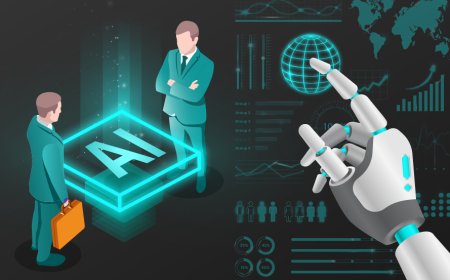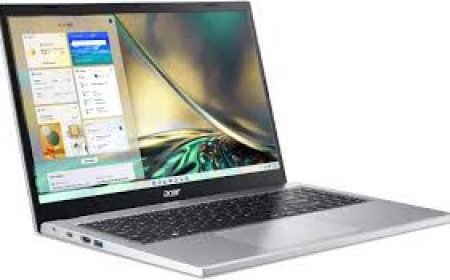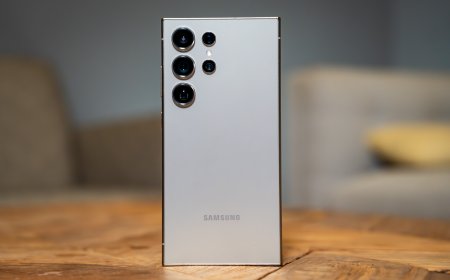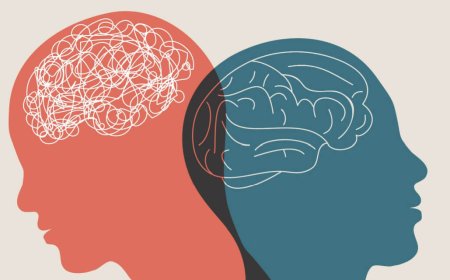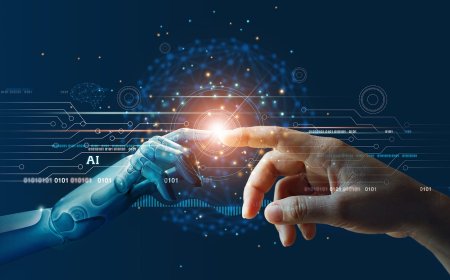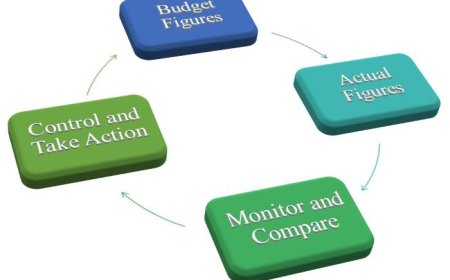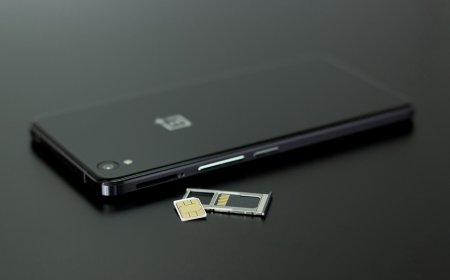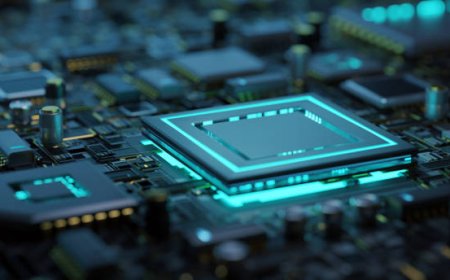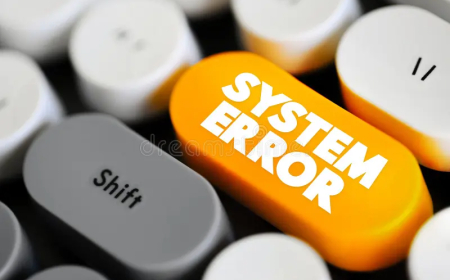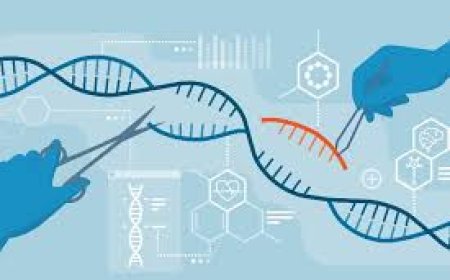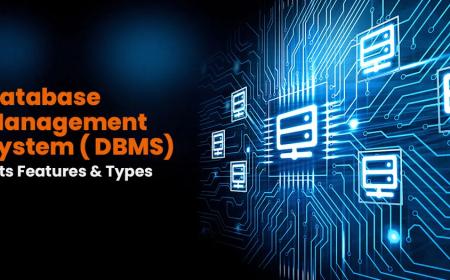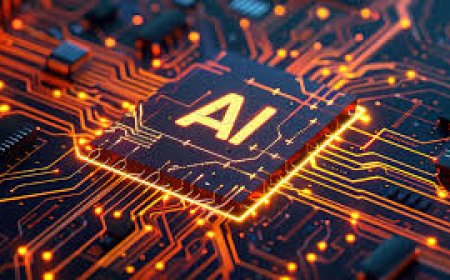The Internet of Things: Transforming Connectivity and Efficiency
Discover how the Internet of Things is revolutionizing connectivity and efficiency through smart devices, automation, and data analytics. Learn the impact on homes, industries, and cities while addressing security challenges.
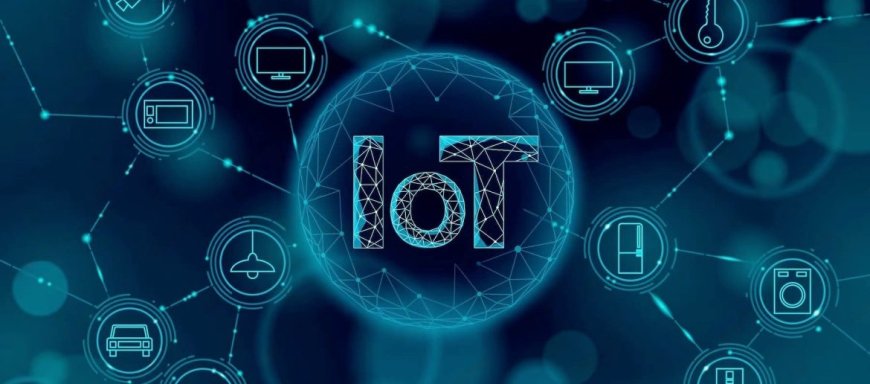
Introduction
The Internet of Things (IoT) represents a transformative paradigm in which everyday objects are interconnected, enabling them to collect, transmit, and process data over the internet. From smart home devices to industrial machinery, IoT has permeated various aspects of modern life, revolutionizing how we interact with technology and each other. As a result, organizations across industries are leveraging IoT to enhance connectivity, optimize operations, and improve efficiency. This essay explores the fundamental principles of IoT, its applications across various sectors, the challenges it faces, and its potential to reshape the future of connectivity and efficiency.
At its core, IoT is built on the principles of connectivity, data exchange, and automation. Devices embedded with sensors and software can communicate with one another, allowing for real-time data collection and analysis. This interconnectedness facilitates smarter decision-making, as organizations can harness the power of big data to predict trends, streamline processes, and enhance customer experiences. For instance, in the healthcare sector, IoT-enabled wearables monitor patient vitals, providing healthcare professionals with critical insights that can lead to timely interventions and improved patient outcomes.
The applications of IoT are vast and varied, spanning sectors such as agriculture, transportation, and manufacturing. In agriculture, IoT sensors monitor soil conditions and crop health, enabling farmers to optimize irrigation and fertilization practices, thereby increasing yield while minimizing resource use. In transportation, IoT technologies support the development of smart logistics systems that enhance supply chain efficiency, reduce costs, and improve delivery times. Meanwhile, in manufacturing, IoT facilitates predictive maintenance, where machines can self-diagnose issues before they lead to costly downtimes.
Despite its immense potential, IoT faces several challenges that must be addressed to fully realize its benefits. Security remains a paramount concern, as the proliferation of connected devices opens new avenues for cyber threats. Ensuring robust data privacy and protection measures is essential to gain consumer trust and promote widespread adoption. Additionally, the integration of diverse devices and platforms can lead to interoperability issues, necessitating the establishment of standardized protocols.
Looking ahead, the potential of IoT to reshape the future of connectivity and efficiency is profound. As technology continues to evolve, the integration of artificial intelligence and machine learning with IoT will further enhance its capabilities, driving innovation across industries. By embracing these advancements, organizations can not only boost operational efficiency but also create a more sustainable and interconnected world, where technology seamlessly enhances our daily lives.
Understanding the Internet of Things
1. Definition and Key Components The Internet of Things (IoT) refers to the network of physical devices—vehicles, appliances, sensors, and other objects—that are embedded with sensors, software, and connectivity capabilities, allowing them to collect and exchange data. The key components of IoT include:
-
Devices/Sensors: These are the hardware elements equipped with sensors to gather data from their environment, such as temperature and humidity readings, motion detection, or location information. These devices form the backbone of IoT, enabling the collection of real-time data that can drive intelligent actions.
-
Connectivity: IoT devices communicate with each other and central systems via the internet or other wireless protocols such as Bluetooth, Zigbee, or cellular networks. This connectivity enables real-time data transfer and interaction, ensuring that devices can work collaboratively to enhance functionality and user experience.
-
Data Processing: The collected data is processed, often through cloud computing systems or edge computing architectures, to derive meaningful insights, detect anomalies, and facilitate smart decision-making. Advanced analytics and machine learning algorithms play a crucial role in transforming raw data into actionable intelligence.
-
User Interface: The information generated from IoT devices is presented to users through applications or dashboards, allowing them to monitor, control, and derive insights from their interconnected devices. A user-friendly interface is essential for maximizing the potential of IoT, enabling stakeholders to engage with technology seamlessly.
2. Types of IoT The IoT can be categorized into several types based on their application and functionality:
-
Consumer IoT: This includes smart home devices, wearables, and other gadgets that enhance the convenience and comfort of daily life. From smart thermostats that learn user preferences to fitness trackers that monitor health metrics, consumer IoT devices are revolutionizing personal lifestyles.
-
Industrial IoT (IIoT): Focused on the manufacturing and industrial sectors, IIoT encompasses smart factories, supply chain optimization, and predictive maintenance applications. By leveraging IoT technologies, industries can enhance operational efficiency, reduce downtime, and improve safety standards.
-
Infrastructure IoT: This includes smart city applications, energy management systems, and transportation networks that enhance the efficiency and livability of urban environments. By integrating IoT solutions, cities can optimize resource usage, improve public services, and enhance the quality of life for residents.
The Internet of Things is a transformative force across various sectors, driving innovation and efficiency. As technology continues to evolve, the potential applications of IoT will expand, paving the way for a more interconnected and intelligent world.
Applications of IoT Across Industries
The Internet of Things (IoT) is poised to transform various sectors by enhancing connectivity and operational efficiencies. Below are some key applications:
-
Smart Homes In residential settings, IoT devices such as smart thermostats, lighting systems, and security cameras create smart homes that enhance convenience and energy efficiency. Homeowners can control appliances remotely through mobile applications, monitor energy usage, and receive alerts for unusual activities. These devices can also learn user preferences, optimizing settings for comfort and efficiency. Furthermore, the integration of voice-activated assistants enables seamless interaction, allowing residents to manage their environments effortlessly.
-
Healthcare The healthcare industry has witnessed a significant impact from IoT, particularly in patient monitoring and telehealth services. Wearable devices and remote sensors continuously track patients' health metrics, such as heart rate and blood pressure, allowing healthcare providers to access real-time data for better patient management. Additionally, IoT can facilitate remote diagnoses and consultations, improving access to care and reducing healthcare costs. Advanced analytics can also predict potential health risks, enabling proactive interventions and personalized treatment plans.
-
Industrial Automation Industrial IoT (IIoT) plays a vital role in enhancing operational efficiency through predictive maintenance, remote monitoring, and automation. Sensors installed on machinery can detect potential issues before they lead to equipment failures, minimizing downtime and saving costs. Moreover, IIoT enables real-time data analytics, allowing manufacturers to optimize production processes, manage inventory, and streamline supply chains. This interconnectedness fosters a culture of continuous improvement, where data-driven decisions enhance productivity and reduce waste.
-
Smart Cities IoT technology is central to the development of smart cities, where interconnected systems improve urban living. Applications include smart traffic management, waste management, and energy-efficient public lighting. By analyzing data from sensors deployed throughout the city, municipalities can optimize resources, reduce energy consumption, and improve citizens' overall quality of life. Additionally, IoT can enhance public safety through intelligent surveillance systems that analyze crowd behavior and detect anomalies in real-time.
-
Agriculture In agriculture, IoT applications are revolutionizing traditional farming practices. Smart sensors monitor soil moisture, crop health, and weather conditions, enabling farmers to make data-driven decisions that enhance yield and sustainability. Automated irrigation systems adjust water usage based on real-time data, conserving resources while maximizing crop production. Furthermore, drones equipped with IoT technology can survey large fields, providing insights into crop performance and pest management, thus fostering precision agriculture.
As industries continue to embrace IoT, the potential for innovation and efficiency will only grow, paving the way for a more connected and intelligent world.
Challenges in IoT Implementation
Despite its transformative potential, the widespread adoption of IoT technology faces several challenges:
-
Security Concerns As IoT devices proliferate, they present substantial security vulnerabilities. Many IoT devices lack robust security protocols, making them susceptible to hacking and cyberattacks. Ensuring the security and privacy of the data collected by IoT devices is paramount to fostering trust among users and stakeholders. Breaches in security not only compromise sensitive information but can also lead to significant financial losses and reputational damage for organizations. Therefore, the development of comprehensive security frameworks and continuous monitoring systems is essential to safeguard IoT ecosystems.
-
Interoperability The diverse range of IoT devices and platforms can lead to compatibility issues. Different manufacturers may use varying protocols and standards, hindering interoperability between devices and systems. This fragmentation can create silos of information, preventing organizations from harnessing the full potential of IoT technology. Developing universal standards and frameworks is crucial to enable seamless communication and collaboration among disparate IoT devices. Collaborative efforts among industry stakeholders are necessary to establish common protocols that promote integration and enhance user experiences across platforms.
-
Data Management and Analytics The massive volume of data generated by IoT devices poses significant challenges in terms of data storage, processing, and analysis. Organizations must invest in scalable storage solutions and advanced analytics tools to make sense of the data collected. The ability to transform raw data into actionable insights is critical for making informed decisions. Additionally, concerns about data ownership and governance must be addressed to ensure ethical and responsible data usage. Establishing clear guidelines for data sharing and privacy will empower users and foster a culture of transparency.
-
Infrastructure Requirements The deployment of IoT technology requires a robust infrastructure, including reliable network connectivity and power sources. Rural and underserved regions may lack the necessary infrastructure to support the rollout of IoT solutions, exacerbating the digital divide and limiting access to IoT benefits. Policymakers and businesses must work together to invest in infrastructure development, ensuring that IoT technologies are accessible to all communities. By bridging this gap, we can unlock the potential of IoT to drive economic growth, enhance quality of life, and promote sustainability.
While IoT technology promises to revolutionize various sectors, addressing these challenges is critical for its successful implementation. A collaborative approach involving industry leaders, governments, and communities will be essential in overcoming these hurdles, paving the way for a more connected and intelligent future.
The Future of IoT
The future of the Internet of Things (IoT) is promising, with several trends likely to shape its evolution:
-
Integration with Artificial Intelligence The convergence of IoT and artificial intelligence (AI) will enhance the capabilities of connected devices. AI-powered analytics can enable IoT systems to learn from data, optimize processes autonomously, and even predict future trends. This integration will lead to smarter decision-making and improved operational efficiencies. For instance, in smart cities, AI can analyze traffic patterns collected from IoT sensors to optimize traffic flow, reducing congestion and enhancing public safety.
-
Edge Computing Edge computing architecture will play a crucial role in IoT deployments, allowing data processing to occur closer to the source of data generation. This reduces latency, conserves bandwidth, and allows for real-time analytics. By processing data at the edge of the network, organizations can achieve quicker responses to critical events. In healthcare, for example, wearable devices can monitor patients' vital signs in real-time, alerting healthcare professionals instantly in case of anomalies, thus improving patient outcomes.
-
Enhanced Security Measures As awareness of security risks grows, there will be an increased emphasis on developing comprehensive security protocols and standards for IoT devices. Manufacturers and service providers will implement advanced encryption, authentication, and monitoring solutions to protect connected devices and data. The rise of decentralized security frameworks, such as blockchain technology, may provide additional layers of protection, ensuring that data integrity is maintained across IoT networks.
-
Sustainable Practices The integration of IoT technologies in various sectors will increasingly focus on sustainability and resource efficiency. From smart energy management systems that optimize energy consumption in real-time to precision agriculture techniques that minimize water usage and chemical runoff, IoT can play an essential role in promoting environmentally friendly practices and reducing waste. For instance, smart irrigation systems can utilize weather forecasts and soil moisture data to optimize water usage, thereby conserving vital resources.
-
Interoperability and Standardization As the number of connected devices grows, the need for interoperability among different IoT systems will become paramount. Establishing common standards will facilitate seamless communication and collaboration between devices from various manufacturers. This will not only enhance user experience but also drive innovation, allowing for the creation of more complex and integrated IoT ecosystems.
The future of IoT is characterized by advancements in AI, edge computing, enhanced security measures, sustainable practices, and interoperability. As these trends converge, they will redefine how we interact with the world around us, enabling smarter, more efficient, and sustainable solutions across industries.
Conclusion
The Internet of Things (IoT) represents a paradigm shift in connectivity and efficiency, with the potential to transform the way we live and work. Its applications across diverse sectors, including healthcare, manufacturing, smart cities, and agriculture, demonstrate its versatility and far-reaching impact. By embedding sensors and connectivity into everyday objects, IoT enables real-time data collection and analysis, fostering a level of responsiveness and adaptability previously unimaginable.
In healthcare, for example, IoT devices facilitate remote patient monitoring, allowing healthcare professionals to track vital signs and health metrics from afar. This not only enhances patient care but also reduces the burden on healthcare facilities. In manufacturing, IoT-driven automation streamlines production processes, resulting in improved efficiency and reduced operational costs. The integration of smart machinery and predictive maintenance systems minimizes downtime, ensuring continuous productivity.
Smart cities are another compelling application of IoT technology. By leveraging interconnected sensors, urban planners can optimize traffic flow, reduce energy consumption, and enhance public safety. For instance, intelligent traffic management systems can analyze real-time data to alleviate congestion, while smart streetlights adjust brightness based on pedestrian activity, contributing to energy savings and improved urban living conditions.
Agriculture, too, is experiencing a revolution through IoT. Precision farming techniques utilize sensors to monitor soil conditions, weather patterns, and crop health, enabling farmers to make informed decisions that enhance yield and sustainability. This not only supports food security but also promotes environmentally responsible practices.
Despite these promising advancements, challenges such as security, interoperability, and data management persist. The proliferation of connected devices raises concerns about data privacy and cyber threats, necessitating robust security protocols. Furthermore, achieving seamless communication between diverse IoT systems requires standardization and collaboration among stakeholders.
Nevertheless, the ongoing development of IoT technology promises innovative solutions for the future. As organizations continue to embrace IoT, we can expect a more interconnected world that fosters efficiency, transparency, and improved quality of life for individuals and communities. The path forward for IoT holds tremendous potential, and its evolution will undoubtedly shape the technological landscape for years to come.
As we navigate this transformative era, it is imperative for businesses, governments, and individuals to engage in proactive dialogue and collaboration. By addressing the challenges and harnessing the capabilities of IoT, we can collectively build a smarter, more resilient future that benefits all facets of society. The journey toward a fully realized IoT ecosystem is just beginning, and its implications will resonate for generations to come.
What's Your Reaction?
 Like
0
Like
0
 Dislike
0
Dislike
0
 Love
0
Love
0
 Funny
0
Funny
0
 Angry
0
Angry
0
 Sad
0
Sad
0
 Wow
0
Wow
0
